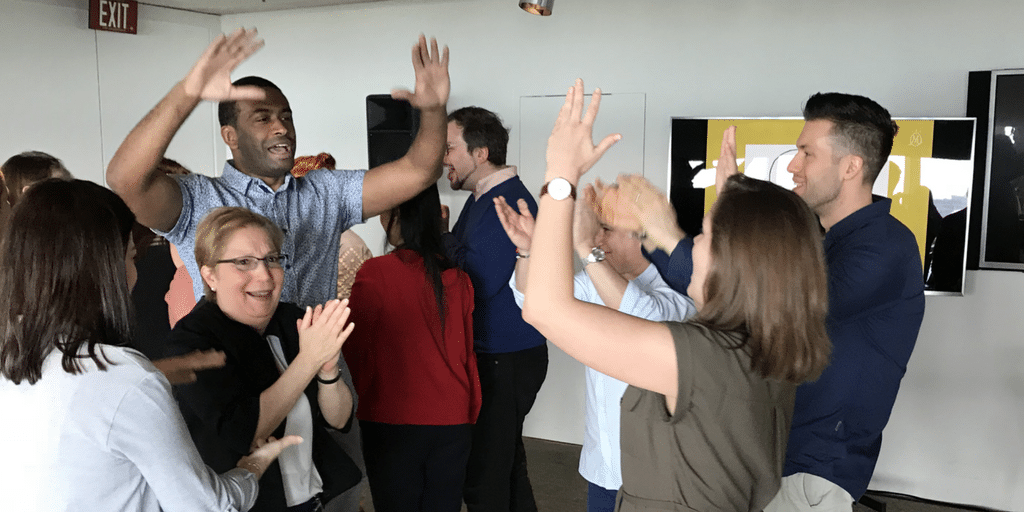“Talent is always conscious of its own abundance, and does not object to sharing.”- Alexander Solzehnitsyn

Recently, a friend (and fellow anthropologist) and I (a cultural anthropologist by training), were discussing the current trends in the field of anthropology, one of which is the ongoing discussion about articulating the value of anthropology to organizations, businesses, friends, and family. In our conversation, I lamented about how anthropologists are frequently defined by who we are not: not quantitative researchers and not concrete thinkers, instead of defining anthropologists by who we are: qualitative researchers, storytellers, and flexible thinkers. I pondered over our conversation for weeks and realized that the first approach (defining by who you are not) emphasizes deficits and scarcity while the latter approach (defining by who you are) emphasizes abundance and values people precisely for the different yet specific skills, identities, and opinions they bring and embody.
The Abundance Mindset
An abundance mindset asks that we see people and employees as co-collaborators and creators by encouraging us to see differences in sociocultural identities, perspectives, and opinions as valuable and necessary, instead of perceiving them as obstacles or threats to a team’s collaboration. Additionally, an approach of abundance recognizes that human relationships don’t just influence our reality, they are our reality, and that the most creative and meaningful ideas come from people and teams. So, it is essential to understand the dynamic and complex interactions between the different individuals in a team to gain a holistic understanding of your employees and coworkers.
In addition, an abundance mindset reframes challenges as opportunities and limitations as possibilities by focusing on what can be done instead of fixating on what is lacking or scarce (time, resources, money). An approach of abundance doesn’t overlook or dismiss limitations, rather it loudly accepts the constraints and trains people to see the possibilities and focus on the full scope of what can be achieved in the face of limitations and nonideal conditions. Learning to see the possibilities requires that we question what is accepted as normal and reimagine our current practices. An approach of abundance helps us rethink our current practices by prompting deeper reflection on questions including but certainly not limited to the following:
- How might our team’s success be impacted by the biases that influence hiring practices?
- How might we cultivate a culture of vulnerability, authenticity, and openness?
- How might we bolster social collaboration and teamwork?

Here are five reasons why an abundance mindset is essential to cultivating a collaborative and bold organizational culture:
1. An approach of abundance encourages collaboration across differences.
To develop an organizational culture that is excited by differences, we must shift our tendency to view differences as “bad” or “negative” and must actively encourage employees to bring their complete selves to workplaces by humanizing differences. When employees are encouraged to bring multiple perspectives, various opinions, and different lived experiences to the workplace, teams are better equipped to design creative ideas and innovative solutions for their diverse customer base.
Here, I’d like to emphasize that collaborating across differences must not be conflated with accommodating and/or absolving people of any racist, classist, or sexist ideologies and opinions they may hold. Rather, I hope to emphasize that everything is political, and that a culture of abundance creates space to engage in the complexity of differences, instead of promoting the simplistic and troubling narrative that asks us to look beyond or past politics to achieve collaboration.
2. A culture of abundance promotes authenticity and vulnerability.
When people are encouraged to bring their complete selves to workplaces, they are likely to be fearless in suggesting bold, authentic, and innovative ideas as they recognize that their workplace is excited by experimentation and sees failure as an opportunity for new possibilities. More importantly, authenticity and vulnerability fosters trust between employees and with the larger organization. Cultivating trust is critical to nurturing an open culture. Additionally, a culture of trust values peoples as fully human, instead of reducing people to automatons and expecting them to obey and just do.

3. An abundance mindset empowers employees to be innovative.
When people are encouraged to be authentic and vulnerable, they are likely to feel more empowered to bring their creative energies and invest in a project. Feelings of investment and pride in the work they are doing directly translates into employees feeling more connected not only to the immediate projects they are working on, but also with the broader mission, values, and goals of the business/organization. Research suggests that teams that have autonomy and feel empowered to challenge the status quo are 69% more successful. This is likely because empowered employees feel confident and assured in putting forth futuristic, unconventional, and experimental ideas that go beyond the perceived and immediate limitations; thereby, adopting the spirit of an abundance mindset.
4. An abundance mindset helps create inclusive and equitable cultures.
An abundance mindset is committed to understanding the different social identities of people and how their identities impact their experiences at the workplace. A mindset of abundance sees differences as opportunities and encourages people to lean into moments of discomfort and engage in the complexity and messiness of differences by loudly naming the value and importance of diversity, which also happens to make us smarter. It doesn’t shy away from vulnerability or difficult conversations about diversity and inclusivity and is deeply committed to humanizing marginalized people in workplaces and creating a culture where all employees (especially marginalized people) feel valued and respected. An equitable culture is also necessary for retaining talented, energetic, and motivated individuals at our workplaces.
Additionally, it is important not to tokenize and/or reduce people to their identities. An approach of abundance avoids the tendency to tokenize by embracing the fact that businesses do their best work when challenging their teams to see the world in more diverse ways.
[Mindhatch’s December Insight will be on the topic of avoiding tokenism. Subscribe to get the Insight before anyone else.]

5. An approach of abundance reframes failures as opportunities.
We have all experienced the real limitations that competing pressures of businesses and practical realities (time, work-life balance) impose on our work; however, an abundance mindset centers the team and encourages employees to fearlessly innovate and rewards them for experimental thinking regardless of whether or not it yields successful results. A culture of abundance does not guarantee success. Teams and businesses will fail and will make mistakes, but an attitude of abundance reframes failure as a space of expansive possibilities and recognizes that failure is a necessary step in the iterative innovation and design process. In many ways, failing is good because it indicates that you are trying and paying attention to what approaches are and are not working. In fact, the sheer ability of humans to expand our thinking and innovate despite and because of failures is a testament to our resilience and creativity. Normalizing failure, reframing it as an opportunity, and adopting the spirit of an abundance mindset are essential to cultivating a collaborative and bold organizational culture.
Finally, instead of employing a scarcity mindset that is fixated on what employees are not, a culture of abundance sees employees as creators and collaborators with complex and dynamic identities, perspectives, and opinions. An approach of abundance helps us see people for who they are and what they can offer. This powerful mindset shift in organizational cultures is critical to fostering innovation and creativity at workplaces. After all, who doesn’t want to retain talented and motivated people in our organizations and businesses?

